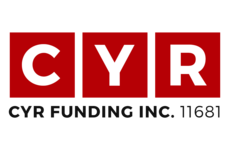Are You a Renovator or Small Builder? You May Find This Insightful
If you are a small builder or renovator, financing the acquisition, renovation or construction costs of a home is a strategic process – especially when it comes to taking out the mortgage upon completion.
Though we are mortgage brokers, we may be biased when we state that arranging financing is exciting. Let us walk you through the process and shed some insight.
The first step of the transaction is the acquisition. If the property is going to be owner-occupied by yourself or a client for whom you are doing the renovation, then, the first mortgage for the purchase could be up to 80% of the purchase price. If it is not owner-occupied, the loan ratio might be decreased to 75%.
The interest rate on the first mortgage for the purchase depends on the borrower’s qualifications, with respect to credit score, net worth and income. If the income is provable by tax returns and meets the ratios required then an “A” lender rate can be obtained. At today’s writing, the rate would be around 2.89%.
If the borrower is self-employed, we can take the bank statements as proof of income, with respect to gross deposits, and use that income to qualify for a “B” lender. Today’s rates would be around 3.99%.
If the borrower cannot provide the above, a private lender might offer 65% to 70% at a 6% to 7% interest rate. There may be lenders, brokers, appraisers and legal fees charged.
The second step is to obtain the renovation or construction money. This usually has to be arranged as a private construction second mortgage. Financial institutions do not like to lend money for renovations. They normally want completed houses. When financing construction we look at the completed value of the property.
Let’s say, for example, there is a project with the following assumptions:
Acquisition $ 600,000*
Down payment $ 150,000
First mortgage $ 450,000 (75%)
Renovation
budget to totally
renovate,
add a 2nd floor
or addition
hard cost $ 300,000*
Soft costs such
as interest and
all professional fees $ 100,000*
Total cost $1,000,000 (*included in this figure)
Completed value $1,400,000
Less:HST ($182,000)
After resales 8% – This may not be applicable if owner occupied
Real estate + legals 5%
For a total of 13% HST
Total selling costs expenses $ 182,000
Net sales $1,218,000
Less: cost $1,000,000
Profit $ 218,000
The completed value is then determined by an appraiser who would need the drawings, specifications and detailed budget.
Financing 65% of completed value
$1,400,000 x 65% = $910,500 total loan
Less: first mortgage
when purchased $450,000
Balance
Second mortgage $460,500
This budget is more than enough to cover hard and soft renovations and construction costs of $400, 500 plus fees. In addition, 10% of the loan amount will be held back in accordance with the Construction Lien Act.
The interest rate on the construction second mortgage depends on the loan ratio to completed value.
For example, as of April 2017
A 65% loan ratio would be 8-9%.
A 70% loan ratio would be 9-10%.
A 75% loan ratio would be 10-12%.
The interest is not charged on the full amount of the loan. Interest is only paid on the amount advanced, which usually cuts the interest in half. The funds are advanced in draws. The advances would be based on the amount of work done or the percentage complete.
Let’s say the borrower wants 3 draws approximately 1/3, 1/3, 1/3 (the percentage complete is usually determined by the appraiser). The $450,000 then would be advanced, as follows:
-
- 1/3 – $150,000 less $15,000 10% construction lien holdback, and less arranging fees + legals $20,000
- 1/3 – $150,000 less $15,000 10% construction lien holdback, less
- -sub search legals $500
- -progress inspection $250
- 1/3 – $150,000 less $15,000 10% construction lien holdback, less
- -sub search legals $500
- -progress inspection $250
The 10% lien holdbacks are released 45 days after completion. Substantial completion is 97%. To start the 45 day count, you will need an occupancy certificate, final inspection of appraiser and publish the completion in a trade paper. Simply put, if the lender does not hold back 10% of the renovation/construction advances, any liens registered by contractors, subcontractors or workers would have priority over the mortgage.
Financing is a key aspect of renovating. The more you can use other people’s money, the more projects you can undertake.
A lender will also want to have a full application, net worth statement, credit bureau, articles of incorporation of all the borrower’s companies and 2 years financial statements, 2 years personal tax returns and notice of assessments, resume of borrowers or the renovator/builder listing descriptions of projects completed to demonstrate experience drawings, budget, building permits, construction contracts if any, and appraisal report.
It is always best to obtain financing for a generous budget with contingencies. In case of unexpected surprises or cost overruns, you won’t have a short fall. Also 10% of the money is not available until 45 days after completion. By that time, you may have sold the house or refinanced it, and may not require that final 10% holdback.
The final step is if you have been unable to sell or if you wish to keep the property to owner-occupy or rent, the final permanent mortgage could be arranged. Say 75% of $1,400,000 completed value which would be $1,050,000. Again, the rate will depend on the borrower qualification.
You will have recouped 100% all your cost and own a house and you will have $150,000 original cash back to partake in another project, should you wish.
Using the services of an experienced mortgage broker will save you time and money in the long run. They can help advise on the best way to structure the financing for your situation. For example, if the borrower owns other properties, it might be cheaper to finance existing properties.
The same principals apply for custom homes being built on spec with some minor renovations which we could discuss in a future article.
For inquiries feel free to contact:
Rena Malkah
Cell: 647-838-5061
Office: 905-731-1111
Email: rena@cyrfunding.com
Website: www.cyrfunding.com
300 John Street Suite 328 Thornhill ON L3T 5W4


